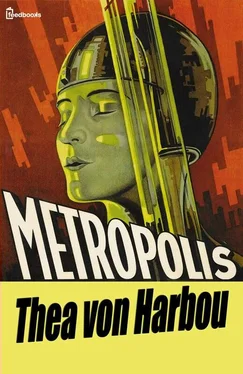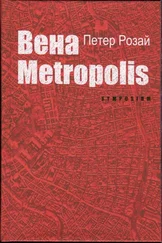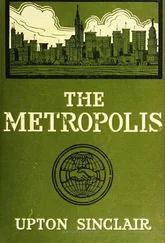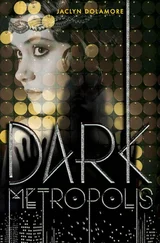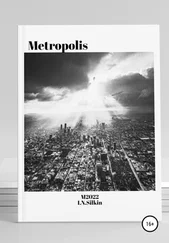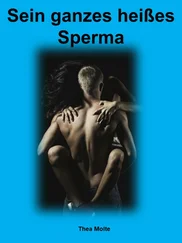But the flaming procession was led by a girl. The girl was Maria. And the girl was screaming with Maria's voice:
"Dance — dance — dance — Maohee!"
She crossed the torches like swords above her head. She swung them right and left, brandishing them so that showers of sparks fell about the Way. Sometimes it seemed as if she were riding on the torches. She raised her knees to her breast, with laughter which brought a moan from the dancers of the procession.
But one of the dancers ran along at the girl's feet, like a dog, crying incessantly:
"I am Jan! I am Jan! I am the faithful Jan! Hear me, at last, Maria!"
But the girl struck him in the face with her sparkling torch.
His clothes caught fire. He ran for some time, a living torch, along by the girl. His voice sounded as if from the blaze:
"Maria—! Maria—!"
Then he swung himself up on to the parapet of the street and hurled, a streak of fire, into the blackness of the depths.
"Maohee—! Maohee—!" called the girl, shaking her torch.
The procession was endless. The procession was endless. The street was already covered, as far as the eye could see, with circling torches. The shrieks of the dancers mixed themselves sharply and shrilly with the angry voices of the archangels of the cathedral. And behind the train, as though tugged along by invisible, unbreakable cords, there reeled a girl, the damp hem of the hose dress lashed about her ankles, whose hair was falling loose under the clawing fingers which she pressed to her head, whose lips babbled a name in ineffectual entreaty: "Freder… Freder… "
The smoke-swathes from the torches hovered like the grey wings of phantom birds above the dancing train.
Then the door of the cathedral was opened wide. From the depths of the cathedral came the rushing of the organ. There mixed itself in the fourfold tone of the archangel bells, in the rushing of the organ, in the shrieks of the dancers, an iron-tramping, mighty choir.
The hour of the monk Desertus had come.
The monk Desertus was leading on his own.
Two by two walked those who were his disciples. They walked on bare feet, in black cowls. They had thrown their cowls back from their shoulders. They carried the heavy scourges in both hands. They swung the heavy scourges in both hands, right and left, right and left, upon the bare shoulders. Blood trickled down from the scourged backs. The Gothics sang. They sang to the time of their feet. To the time of their scourge strokes did they sing.
The monk Desertus was leading the Gothics on.
The Gothics bore a black cross before them. It was so heavy that twelve men had to carry it, pantingly. It swayed, held up by dark cords.
And on the cross hung the monk Desertus.
The black flames of the eyes in the flame-white face were fixed upon the procession of dancers. The head was raised. The pale mouth was opened.
"See!" shouted the monk Desertus in a voice which ail-powerfully out-rang, the fourfold tone of the archangel bells, the rushing of the organ, the choir of scourge-swingers and the shrieks of the dancers: "See—! Babylon, the great—! The Mother of Abominations—! Doomsday is breaking—! The destruction of the world—!"
"Doomsday is breaking—! The destruction of the world—!" chanted the choir of his followers after him.
"Dance — dance — dance — Maohee—!" shrieked the voice of the girl leading the dancers. And she swung her torches over her shoulders, and hurled them far from her. She tore her gown from shoulders and breasts, standing, a white torch, stretching up her arms and laughing, shaking her hair; "Dance with me, Desertus — dance with me—!"
Then the girl, dragging herself along at the end of the train, felt that the cord, the invisible cord upon which she was hanging, snapped. She turned around and began, not knowing, whither, to run — only to get away — only to get away — no matter where to — only to get away—!
The streets flashed by in a whirl. She ran and ran, down, and down, and at last she saw, running along the bottom of the street and towards her, a wild mob of people, saw, too, that the men wore the blue linen uniform and sobbed in relief:
"Brothers — brothers—!"
And stretched out her hands.
But a furious roar answered her. Like a collapsing wall, the mass hurled itself forward, shook itself loose and began to tear along, roaring loudly.
"There she is—! There she is—! The bitch, who is to blame for it all—! Take her—! Take her—!"
The women's voices shrieked:
"The witch—! Kill the witch—! Burn her before we all drown!"
And the trampling of running feet filled the dead street, through which the girl fled, with the din of hell broken loose.
The houses flashed by in a whirl. She did not know the way in the dark. She sped on, running aimlessly, in a blind horror, which was the deeper for her not knowing its origin.
Stones, cudgels, fragments of steel, flew at her from behind. The mob roared in a voice which was no longer human:
"After her—! After her—! She'll escape us—! Quicker—!! Quicker—!!"
Maria could no longer feel her feet. She did not know if she was running on stones or water. Her panting breath came through lips which stood apart as those of one drowning. Up streets, down streets… A twirling dance of lights was staggering across the way, far ahead of her… Far away, at the end of the enormous square, in which Rotwang's house also lay, the mass of the cathedral rested upon the earth, weighty and dark, yet showing a tender, reassuring shimmer, which fell through cheerful stained-glass windows and through open portal, out into the darkness.
Suddenly breaking out into sobs, Maria threw herself forward with her last, entirely despairing strength. She stumbled up the cathedral steps, stumbled through the portal, perceived the odour of incense, saw little, pious candles of intercession before the image of a gentle saint who was: suffering smilingly, and collapsed on to the flags.
She no longer saw how, at the double opening of the street which led to the cathedral, the stream of dancers from 'Yoshiwara coincided with the roaring stream of workmen and women, did not hear the bestial shriek of the women at the sight of the girl who was riding along on the shoulders of a dancer — who was torn down, overtaken, captured, and stamped to earth — did not see the short, ghastly hopeless conflict of the men in evening dress with the men in blue silinen — nor the ridiculous fight of the half naked women before the claws and fists of the workmen's wives.
She lay in deep oblivion, in the great, mild solemnity of death, and from the depths of her unconsciousness she was not awakened even by the roaring voice of the mob which was erecting a bonfire for the witch, before the cathedral.
"FREDER—!!! GROT—!!! FREDER—!!!"
Josaphat shouted so that his voice cracked, and raced with the bounds of a harried wolf, through passages, across steps of the great pump-works. His shouts were not heard. In the machine rooms were wounded machines in agony, wanting to obey and not being able. The door was closed. Josaphat hammered against it with his fists, with his feet. It was Grot who opened it to him, revolver in hand.
"What in the name of seething hell… "
"Get out of the way—! Where's Freder—?"
"Here! What's the matter?"
"Freder, they've taken Maria captive—"
"What?"
"They've taken Maria captive and they're killing her—!"
Freder reeled. Josaphat dragged him towards the door. Like a log, Grot stood in his way, his lips mumbling, his eyes glaring.
"The woman who killed my machine—!"
"Shut up, you fool — get out of the way—!"
"Grot!" A sound born half of madness….
Читать дальше
